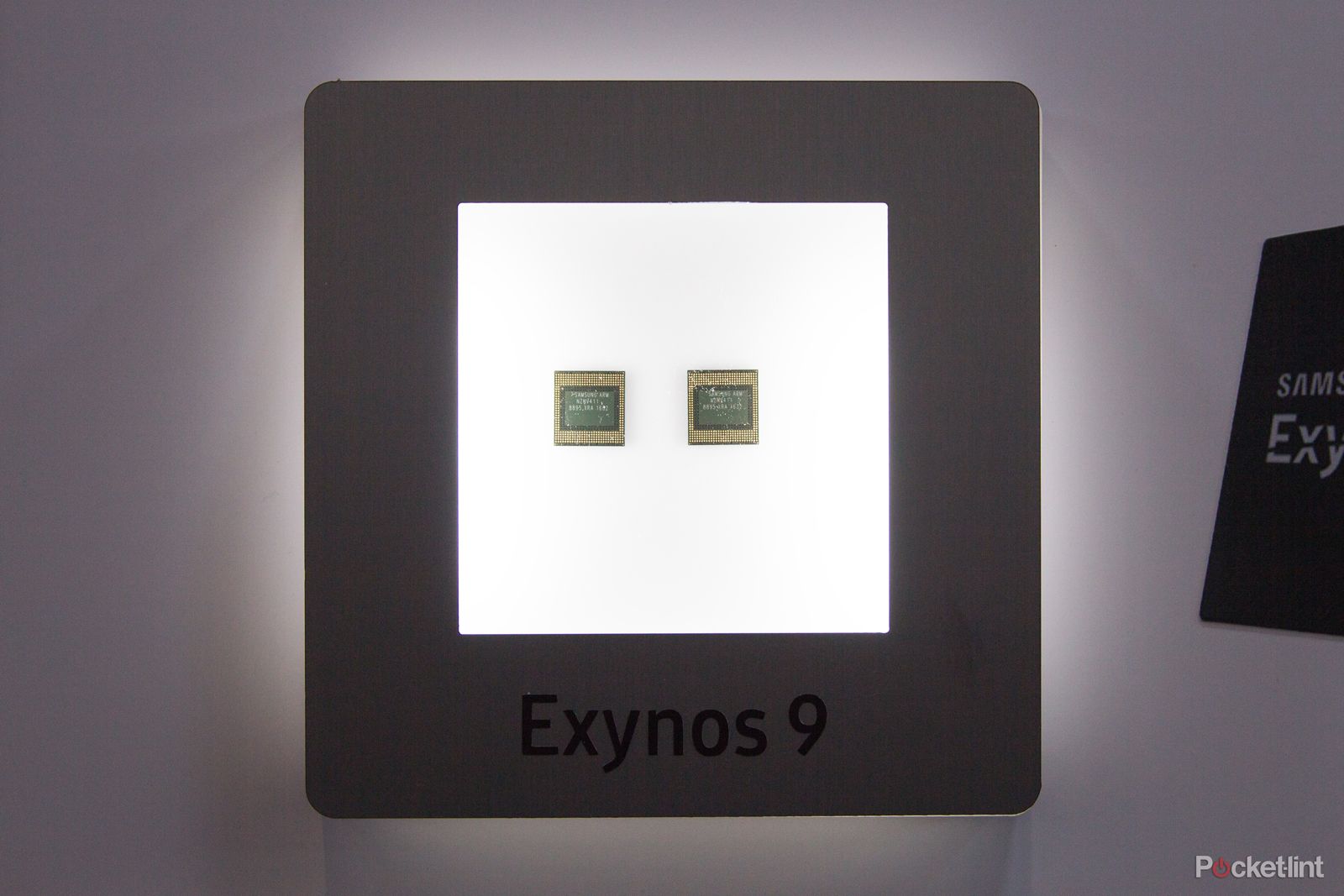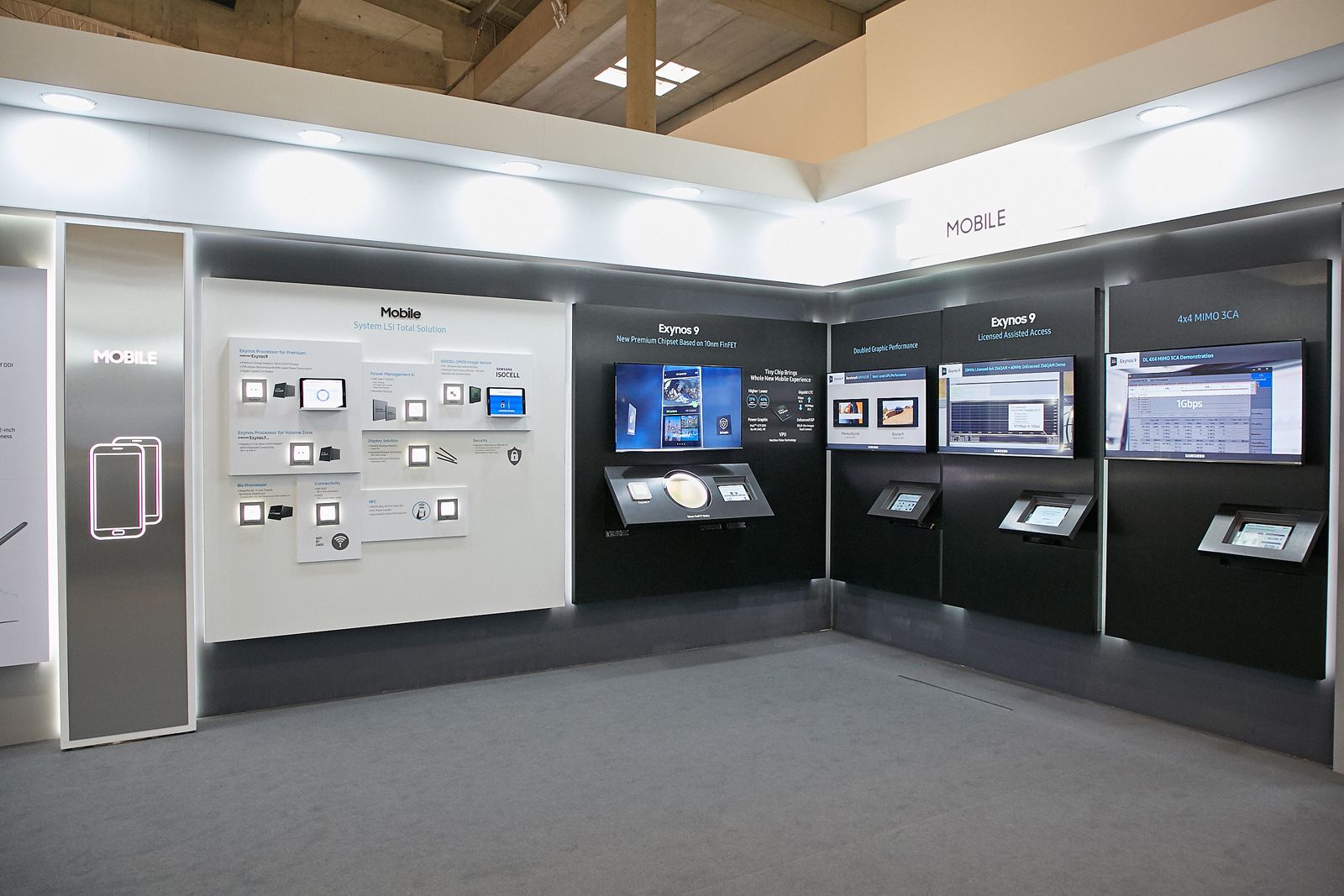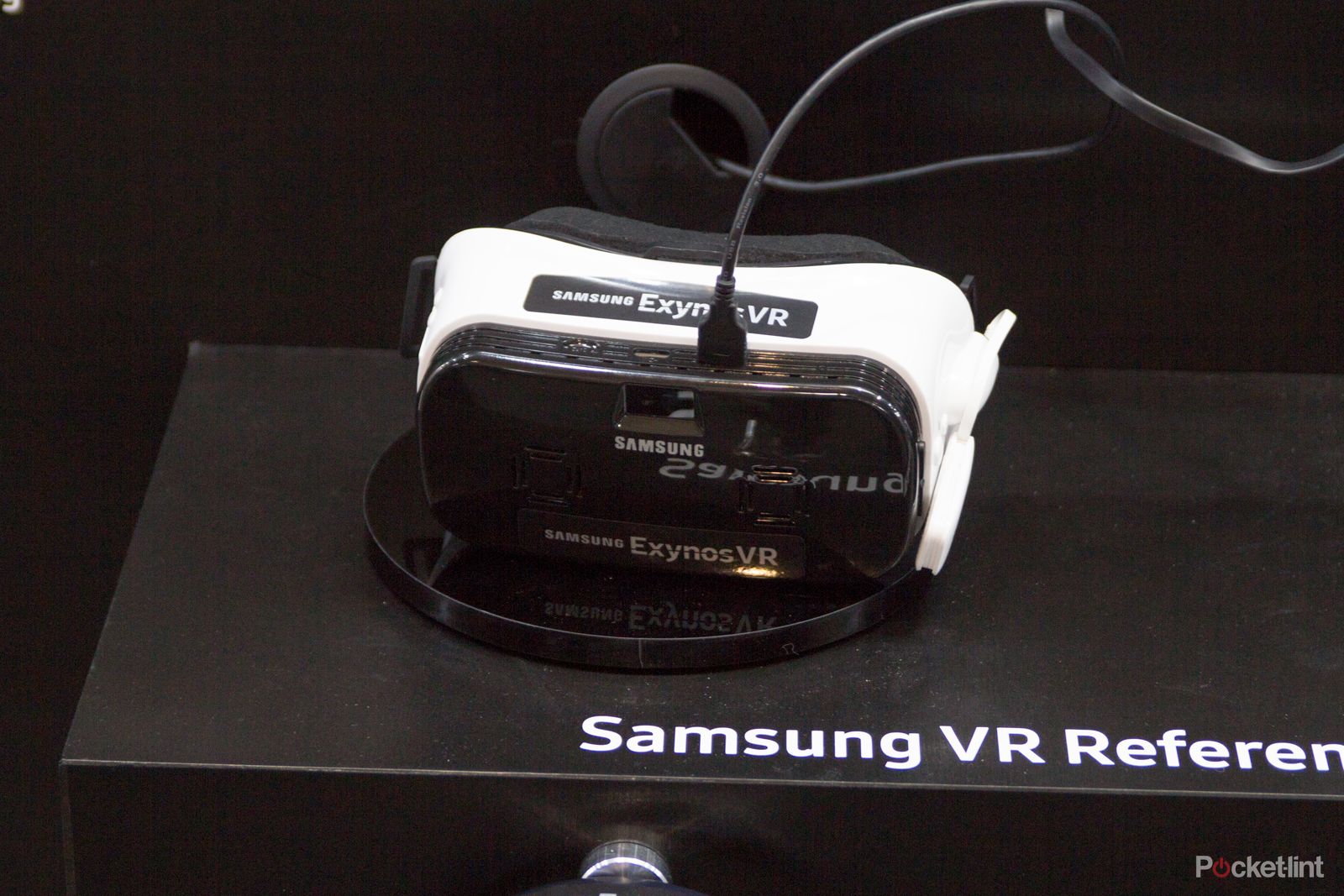Samsung Exynos is really known for one thing: putting Samsung's own chips in some versions of its smartphones. In that sense, it's often seen as the lesser alternative to Qualcomm, with two different hardware configurations for different parts of the world.
Much of this positioning comes down to marketing, with Qualcomm generally being seen as having a higher profile than many "own brand" chipsets, like Exynos or Huawei's Kirin, although there has also been a slight barrier over supported wireless protocols, like CDMA.
That we'll see Samsung's new Exynos 9 series chip - the 8895 - in the Samsung Galaxy S8 perhaps isn't in question, although that was a question that Ben Hur, vice president of marketing at Samsung's system LSI business, couldn't be drawn to answer when we sat down for a chat at Mobile World Congress.
The aim for the Exynos brand, according to Hur, is to expand its reach into more products and device categories and not just to power the latest Samsung smartphone. It was explained to us that there's actually a "firewall" between Samsung's device and component companies, so getting Exynos into a new device isn't guaranteed.
In 2017 there's something of a restructuring of Exynos into different tiers, for different applications: Exynos 9, Exynos 7, Exynos 5 and Exynos 3 are designed to deliver solutions for a range of different situations, broadly split into premium, high, medium and low - across things like smartphones, cars, VR and IoT.
The Exynos 8895 will probably take a lot of headlines once the Samsung Galaxy S8 is revealed on 29 March, but we already know a lot about it: it uses the same 10nm FinFET technology as the Snapdragon 835 (both are being manufactured by Samsung). It's claimed that this will offer a 27 per cent performance increase compared to 14nm chips of the previous generation.
But the 8895 also incorporates a Gigabit LTE modem, a 20-core Mali-G71 GPU, support for 28-megapixel front and rear cameras (or dual 28MP + 16MP rear cameras). It will power a 4K display at 60fps, and capture 4K video at 120fps. It's powerful and competitive.
Like the Qualcomm Snapdragon 835, the Exynos 8895 can be used to drive VR devices, with both Samsung and Qualcomm showing off reference headsets based on respective hardware. Qualcomm took to its main stand at MWC, but Samsung's reference VR head-mounted displays were reserved for a private area hiding in hall 2.
The Exynos 8895 can drive a 4K VR display at 75Hz refresh rate, designed to reduce some of the feelings nausea that lesser device can induce. When we asked whether there was an Exynos 8895 VR headset we were sad to hear that there wasn't, but the new chipset is being positioned as one that will power a standalone VR solution, separate from the existing Gear VR that's based around a smartphone experience.
What Samsung did offer us instead, was a look at one of the current reference VR headsets, pushing a 700ppi display. This brings a richness to the visuals that takes a step above some of the solutions out there already, with Samsung telling us that 700ppi is really the figure you want to be aiming for when it comes to VR. In reality, that means you'll probably need that 4K display, something that Samsung can also supply.
Samsung's aim is to spread Exynos wider. While many companies are using its displays or memory, for example, there's more on offer, it's being restructured and we get the feeling that Samsung wants to be more competitive in this side of the market, pushing Exynos not as a lesser alternative, but as a preferred option.



